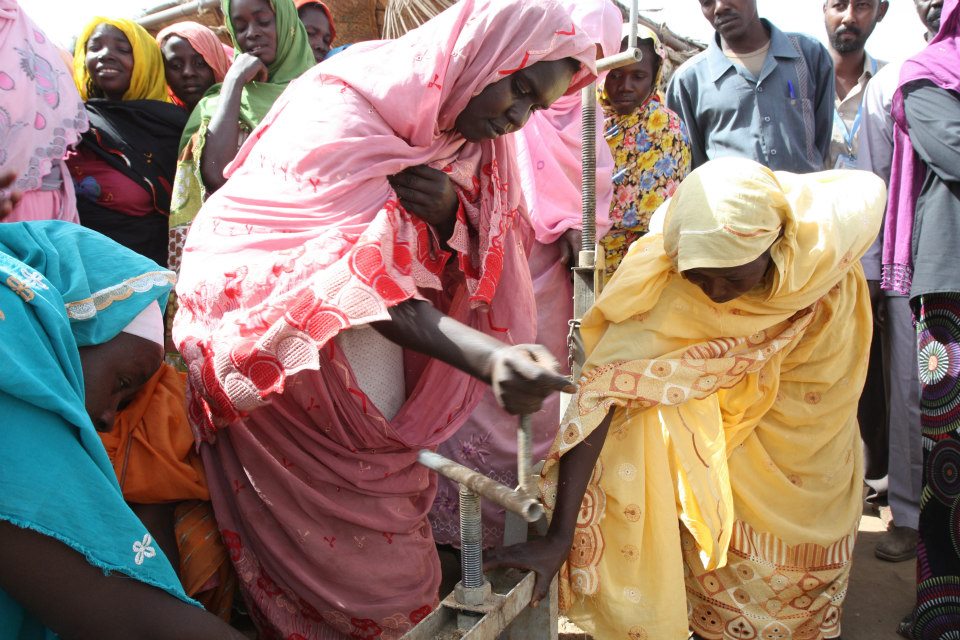24th June 2013
The UK in Sudan
Last week I had the honour of being invited to speak to a distinguished group of Sudanese ambassadors, academics, journalists and members of civil society at the Future Studies Centre. I spoke about what I always speak about: The UK-Sudan relationship, what the British embassy does here, and what we try to achieve.
It’s often said that if you want a message to get through you have to keep on repeating it until you’re sick of hearing it. I’m not sick of hearing the message about the UK in Sudan, because I think it’s rather impressive. But maybe that’s because I haven’t delivered it enough yet. I certainly need to keep going because there are still many who haven’t heard it.
Even the distinguished group I was speaking to (which included several former Sudanese ambassadors to the UK) said they had learnt something new about the embassy’s role in Sudan. And clearly not all were convinced by what I had to say.
I emphasised that the UK wants to work with Sudan in realising the Sudanese vision for the country. I quoted from the Cooperation Agreement between Sudan and South Sudan signed by Presidents Bashir and Kiir in Addis last September which refers to a Sudan as “stable, secure and at peace with [South Sudan] and its neighbours” and to the description in the Constitution of “an all-embracing homeland where religions and cultures are sources of strength, harmony and inspiration.”
These seem to set out a great vision towards which Sudan should be progressing and on which the UK can work in partnership with Sudan in helping to get there. I described some of the things we do to help achieve this: Our work to support the peace processes, to resolve internal conflict, to provide capacity building for various Sudanese institutions, to develop the private sector, to help prepare for the 2015 elections, to support the institutions and groups promoting human rights, to provide humanitarian and development assistance.
To those who prefer numbers to words I quoted a few:
– Last year we helped 777,000 people access food security and livelihoods assistance services and almost 2.7m people access health and nutritional support.
Between 2011 and March 2013 we:
– helped almost 855,000 girls and women gain access to justice; 467,000 people obtain access to drinking water;
– 52,000 people and firms gain access to financial services;
– 113,000 people obtain access to sustainable sanitation facilities; and 327,000 people exercise greater choice over their lives and hold decision-makers to account.
Many Sudanese think that the British Council has left Sudan, because it has closed its libraries. But it has some impressive figures too. Last year:
• 50,000 people worked with the British Council face-to-face through projects and programmes
• 22,000 people attended exhibitions, concerts and festivals
• 40,000 people were reached digitally
• 4,000 people took UK examinations with us
• The British Council Teaching Centre taught 3,000 students, including 1,000 in the military and police
• The British Council trained 1,000 teachers of English in government schools who in turn taught 200,000 students. If the programme can be rolled out to all 17 states it will impact 5 million students per year
Seeing the reality is even more impressive than words and numbers. Just before my speech to the Future studies Centre I spent a couple of days in Darfur. Together with the head of UNAMID, Dr Chambas, and some diplomatic colleagues to the IDP camp and village of Shangil Tobaya. The people there had 2 very clear requests: First and foremost, peace. Secondly, development; in particular schools and clinics. As the second largest bilateral donor in Darfur and active in trying to move forward implementation of the Doha peace process, we are heavily involved in helping to meet these very basic and utterly reasonable requests from the ordinary people of Darfur.
Back in Khartoum I of course discussed with the Future Studies Centre, the current stand-off between Sudan and South-Sudan. We have made very clear that we do not support armed conflict as a means of securing political goals nor should either country be supporting rebel groups in the other.
Cutting off the oil would be a drastic step, which I know many Sudanese are unhappy about. It risks resulting in the suspension of the whole Addis package and all that has been achieved in building a more constructive relationship between Sudan and South Sudan. Nobody wants that to happen. Both countries have now accepted a proposal from President Mbeki to determine the truth of allegations. This is the right way to go; not unilateral actions by either side. We must hope that, with his help, Sudan and South Sudan will find a way to resume progress towards the peaceful and prosperous relationship that is so clearly in both their interests.
